Bedrijfsnieuws
E-Malt news
Americas: Heineken appoints Alex Carreteiro as Regional President Americas
Europe: Europe�s beer market continues to contract for the fifth consecutive year
UK: AHDB releases 2026/2027 recommended lists of cereals and oilseeds
USA, MD: Watchtower Brewing Company becomes Aberdeen�s first brewery
Onze mouten
Onze hoppen
New Hops
Onze gisten
Onze kruiden
Onze suikers
Onze kroonkurken
-

 Crown Caps 29mm TP-PVC Free, Gold NEU col. 4310 (6500/box)
Toevoegen aan kar
Crown Caps 29mm TP-PVC Free, Gold NEU col. 4310 (6500/box)
Toevoegen aan kar
-
 Kegcaps 64 mm, Goud 116 Sankey S-type (EU) (1000/box)
Toevoegen aan kar
Kegcaps 64 mm, Goud 116 Sankey S-type (EU) (1000/box)
Toevoegen aan kar
-
 Kegcaps 69 mm, Zwarten 91 Grundey G-type (850/box)
Toevoegen aan kar
Kegcaps 69 mm, Zwarten 91 Grundey G-type (850/box)
Toevoegen aan kar
-
 Kegcaps 74 mm, Gold 116 Flatfitting A-type (700/box)
Toevoegen aan kar
Kegcaps 74 mm, Gold 116 Flatfitting A-type (700/box)
Toevoegen aan kar
-
 Kroonkurken 26mm TFS-PVC Free, Red Neu col. 2151 (10000/box)
Toevoegen aan kar
Kroonkurken 26mm TFS-PVC Free, Red Neu col. 2151 (10000/box)
Toevoegen aan kar
Bier Recepten
Certificaten
Suggestie
 Ghana: Guinness Ghana Breweries records strongest financial performance in its history
Ghana: Guinness Ghana Breweries records strongest financial performance in its history
Guinness Ghana Breweries recorded its strongest financial performance in company history during the fiscal year ending June 2025, even as ownership transferred from Diageo to the Castel Group in a transaction that reshaped one of Ghana’s most prominent listed companies, News Ghana reported on October 4.
The brewer reported revenue of GH¢3.60 billion for the twelve-month period, representing a 52% jump from the previous year’s GH¢2.37 billion. But the real story sits further down the income statement, where profit after tax surged 862% to GH¢334.6 million compared to just GH¢34.8 million in fiscal 2024.
Those numbers translated into earnings per share of GH¢1.088, up from GH¢0.113 the previous year. The board responded by recommending a dividend of GH¢0.098 per share, more than quadruple the prior year’s GH¢0.022 payout.
The financial results captured a company firing on multiple cylinders. Volume growth reached 15.4%, strategic price increases pushed revenue higher, and disciplined cost control delivered productivity gains worth GH¢184 million according to the annual report. Perhaps most significantly, the company’s beer portfolio exceeded 50% value share of the Ghanaian market for the first time in over a decade.
Yet these achievements played out against the backdrop of a fundamental ownership transition. Diageo sold its 80.4% stake to Boissons Nouvelles Holding, a member of the Castel Group, in a deal valued at $81 million. The transaction completed on July 3, 2025, just days after the fiscal year ended.
The timing meant that Guinness Ghana’s record performance happened under Diageo’s ownership, but the company that reported those results now answers to new masters. Castel Group, a major beverages player with extensive African operations, brings different priorities and strategic approaches than its predecessor.
What makes the transition particularly noteworthy is how the relationship with Diageo continues despite the sale. Guinness Ghana retained long-term licensing agreements to brew, produce and distribute the Guinness brand along with other Diageo products. A separate distribution agreement remains in place for Diageo’s international premium spirits portfolio, including Johnnie Walker which saw strong growth during the year.
This structure allows Diageo to exit direct ownership while maintaining brand control and royalty income. For Castel, it provides immediate access to established brands without having to build market presence from scratch. And for Guinness Ghana, it means business continuity even as ownership changes hands.
The board experienced significant turnover following the transaction. Former Managing Director Felicite Nson and several other Diageo-appointed directors resigned, replaced by Castel executives including new Managing Director Frédéric Feraille and Finance Director Erwan Conan. Gregory Clerc, Chief Executive Officer (CEO) of Castel Group, and Laurence Dequatre, Chief Financial Officer (CFO) of Castel, also joined the board.
The company’s operational achievements during the fiscal year suggest momentum that the new ownership will want to maintain. Commercial outlet coverage expanded from 35,000 to 42,000 locations, broadening distribution reach across Ghana. The Guinness brand strengthened through cultural activations including “Matchday” and “Accravaganza” events, while the launch of Guinness Smooth attracted younger consumers.
Local sourcing reached 69% of raw materials, supporting over 5,700 Ghanaian farmers directly. That localization provides some buffer against currency volatility and import cost pressures that have challenged many Ghanaian businesses.
The sustainability report revealed progress on environmental targets. The company collected 900 tons of plastic waste, exceeding its 800-ton goal, and provided clean water access to over 86,000 people. Direct greenhouse gas emissions fell to 28,037 tonnes of carbon dioxide equivalent (tCO₂e), beating the reduction target. Recycled polyethylene terephthalate (PET) content in bottles increased to 40%, surpassing the 35% objective.
On the social responsibility front, the company educated over 34,000 students on underage drinking risks and engaged more than one million consumers with its “Control Be Sense” moderation campaign. Nearly 2,000 bartenders received training, with women comprising 35% of participants. The “Learning for Life” hospitality program trained 210 people.
The financial position shows total assets of GH¢1.79 billion, though current liabilities exceed current assets. Directors affirmed the company’s ability to continue as a going concern, citing plans to secure funding, improve cash flows and access shareholder support. Deloitte issued an unmodified audit opinion, stating the financial statements present a fair view.
The audit identified impairment of trade receivables worth GH¢193.2 million as a key area requiring scrutiny, but concluded that management’s expected credit loss calculations were appropriate. That receivables figure suggests some customers are struggling to pay, reflecting broader economic pressures in Ghana.
The 53rd Annual General Meeting (AGM) is scheduled for October 29, where shareholders will vote on receiving the financial statements, approving the dividend and reelecting or appointing directors following the board changes.
What happens next depends largely on how Castel approaches its new asset. The French beverage group has extensive African experience, operating breweries and distribution networks across multiple countries. That experience could accelerate growth, but it also means Castel knows African markets well enough to recognize challenges.
Ghana’s economy has stabilized somewhat from its 2022-2023 debt crisis, but inflation remains elevated and currency pressures persist. Guinness Ghana’s ability to deliver volume growth and gain market share during a difficult period demonstrates operational strength, but sustaining that performance requires continued investment and market responsiveness.
The record dividend payout totaling GH¢30.14 million represents the highest distribution in seven years, rewarding shareholders who stayed through challenging periods. Whether that generosity continues under Castel ownership remains to be seen, as the new majority shareholder may prefer reinvesting profits rather than distributing them.
For Ghana’s beverage sector, the ownership change introduces a new competitive dynamic. Castel’s entry through acquisition rather than organic growth signals confidence in the market’s long-term potential despite near-term economic headwinds. How that confidence translates into strategy will shape not just Guinness Ghana’s trajectory, but potentially the broader alcoholic beverages landscape in West Africa.
The company enters its next chapter with strong financial momentum, an established brand portfolio, and new ownership bringing fresh capital and African expertise. Whether that combination can build on fiscal 2025’s record performance will become clear over the coming quarters as Castel’s strategic vision takes shape.
Back





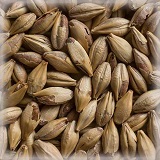
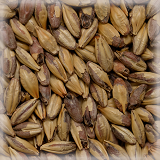

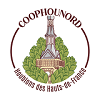
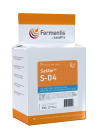

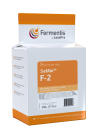




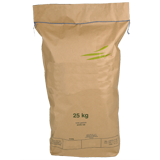
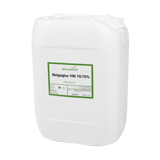
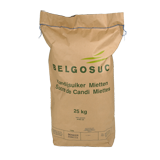
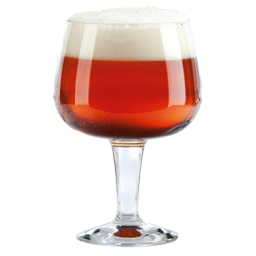
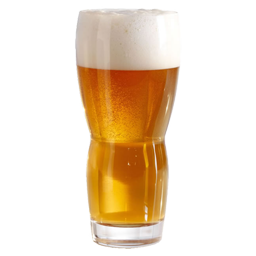
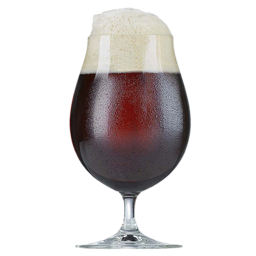
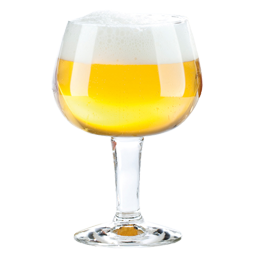
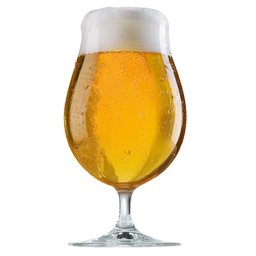
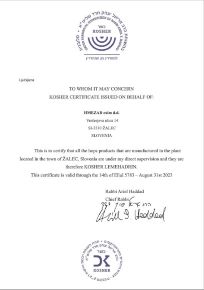 Hmezad Hops, KOSHER Certificate 2024-2025
Hmezad Hops, KOSHER Certificate 2024-2025
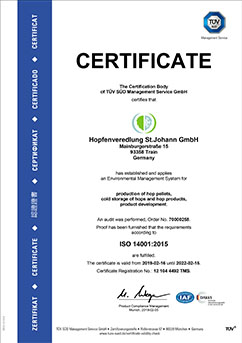 Hops Hopfenveredlung St.Johann, Certificate ISO 14001:2015 2022-2025
Hops Hopfenveredlung St.Johann, Certificate ISO 14001:2015 2022-2025
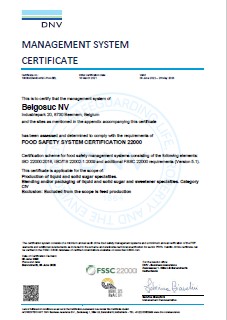 Belgosuc sugar, Management System Certificate 2022 (English)
Belgosuc sugar, Management System Certificate 2022 (English)
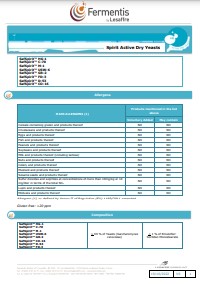 Fermentis - Spirit Dry Yeast Information 2023
Fermentis - Spirit Dry Yeast Information 2023
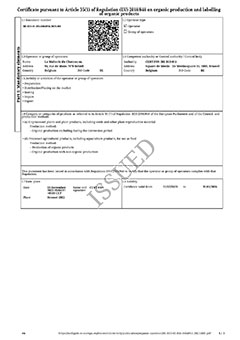 Organic Certificate ENG: Malt, Hops, Spices and Sugar - Jul 2025-Mar 2028
Organic Certificate ENG: Malt, Hops, Spices and Sugar - Jul 2025-Mar 2028






